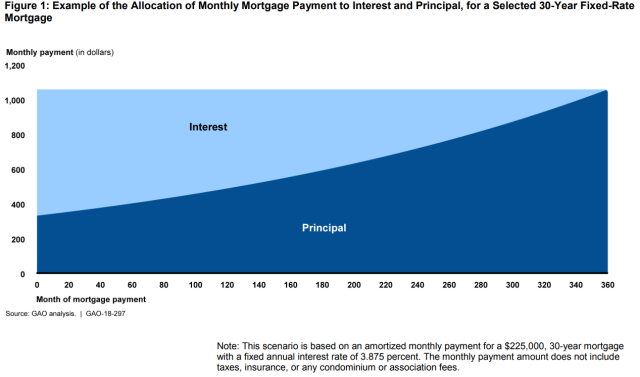Understanding Fees and Interest on Equity Release Mortgages
Understanding Fees and Interest on Equity Release Mortgages
Blog Article
Discovering the Different Sorts Of Equity Release Mortgages Available Today
Equity Release mortgages existing various choices for house owners aged 55 and over. equity release mortgages. These economic products deal with various demands and choices, enabling individuals to accessibility funds from their property. From lifetime home loans to common appreciation home loans, each kind supplies distinctive advantages. Recognizing these options is important for making educated choices. What factors should one consider when picking one of the most suitable equity Release strategy? The details that follow might drop light on this essential subject
Recognizing Equity Release Mortgages
Equity Release home mortgages give home owners, generally those aged 55 and over, with a way to access the worth locked up in their home without requiring to offer it. This economic option enables individuals to transform a section of their home equity into cash, which can be utilized for numerous functions, such as home renovations, repaying financial obligations, or funding retirement.Equity Release can take various forms, however it basically involves loaning against the worth of the home while preserving ownership. Home owners can pick to obtain a swelling sum or a series of smaller settlements, relying on their financial needs and preferences.Additionally, the quantity offered for Release is influenced by the building's worth, the property owner's age, and details lending institution standards. In general, comprehending equity Release mortgages is vital for homeowners to make educated decisions regarding using their home's equity while taking into consideration the long-lasting effects.
Life time Mortgages
Life time home loans represent one of the most popular types of equity Release. This economic item allows homeowners, typically aged 55 or older, to obtain against the value of their residential or commercial property while retaining ownership. The funding, which is secured against the home, accrues rate of interest with time however does not call for monthly settlements. Rather, the loan and accrued passion are settled when the home owner passes away or relocates right into lasting care.Lifetime mortgages supply adaptability, as customers can select to get a swelling amount or select a drawdown facility, accessing funds as needed. Notably, lots of plans included a no-negative-equity warranty, ensuring that debtors will never owe even more than the worth of their home. This function gives comfort, permitting people to appreciate their retirement without the worry of diminishing their estate. Generally, lifetime home mortgages serve as a sensible alternative for those looking for financial backing in later life.
Home Reversion Program

Drawdown Lifetime Mortgages
While lots of homeowners look for methods to access their wide range, drawdown lifetime home loans present a versatile alternative that permits people to Release funds gradually. This sort of equity Release mortgage makes it possible for home owners to borrow versus the worth of their residential or commercial property while retaining ownership. Unlike traditional lifetime mortgages, drawdown strategies permit customers to access a portion of their equity upfront and withdraw added funds as required, as much as an established limit.This attribute can be specifically useful for those who wish to handle their funds very carefully, as it minimizes passion accumulation by just billing rate of interest on the quantities attracted. In addition, drawdown lifetime home loans often come with a "no unfavorable equity warranty," ensuring that debtors will certainly never ever owe even more than their home's worth. This option fits retirees that want financial security and flexibility, enabling them to meet unanticipated expenditures or maintain their way of living without having to sell their home.
Improved Life Time Mortgages
Boosted Life time Mortgages provide distinct advantages for qualified house owners seeking to Release equity from their properties. Comprehending the qualification standards is necessary, as it determines who can take advantage of these specialized fundings. It is additionally essential to examine the prospective disadvantages linked with enhanced alternatives, making sure an all-around viewpoint on their use.
Eligibility Requirements Clarified
Comprehending the qualification requirements for Boosted Lifetime Mortgages is important for potential candidates looking for to access the equity in their homes. Generally, candidates should be aged 55 or older, as this age requirement is standard in the equity Release market. Homeowners need to have a residential or commercial property valued at a minimal threshold, which can vary by lending institution. Notably, the residential property should be their primary house and in good problem. Lenders often examine the property owner's health status, as certain health and wellness conditions may enhance qualification and advantages. In addition, applicants need to not have existing considerable financial debts protected versus the residential or commercial property. Satisfying these criteria enables people to explore Boosted Lifetime Home loans as a sensible choice for read this accessing funds bound in their homes.
Benefits of Improved Mortgages
After clarifying the eligibility standards, it ends up being evident that Improved Life time Home mortgages provide numerous considerable benefits for house owners seeking to leverage their property equity. Largely, they offer accessibility to a bigger funding amount compared to conventional lifetime home mortgages, benefiting those with wellness conditions or age-related elements that boost their life expectancy risk. This improved borrowing capability allows house owners to satisfy different economic demands, such as home enhancements or retirement costs. Furthermore, these home mortgages commonly include versatile repayment choices, enabling customers to manage their finances better. The no-negative-equity warranty further ensures that property owners will never ever owe greater than their building's worth, providing peace of mind. Generally, Improved Lifetime Home loans present an engaging option for qualified homeowners looking for monetary solutions.
Potential Drawbacks Thought About
While Enhanced Lifetime Mortgages provide many benefits, prospective downsides require cautious consideration. One significant problem is the effect on inheritance; the equity launched minimizes the value of the estate entrusted to beneficiaries. Furthermore, these mortgages can accumulate substantial rate of interest over time, causing a significant financial obligation that might exceed the original funding amount. There might additionally be restrictions on home alterations or rental, restricting home owners' adaptability. Improved items commonly call for specific health problems, indicating not all house owners will certainly certify. Ultimately, taking care of the fees and costs related to these mortgages can be complicated, potentially bring about unforeseen expenses. Because of this, people should extensively assess their scenario and consult financial experts before continuing.
Shared Gratitude Mortgages
Shared Admiration Home mortgages represent a distinct financial setup that allows property owners to accessibility equity while sharing future residential or commercial property value enhances with the lending institution. This strategy offers potential advantages such as lowered month-to-month settlements, however it additionally includes drawbacks that should be thoroughly taken into consideration. Comprehending the eligibility demands is necessary for those curious about this alternative.
Idea Overview
Equity Release home mortgages, especially in the type of common appreciation mortgages, use home owners an unique financial remedy that allows them to accessibility funds by leveraging the worth of their residential or commercial property. In this arrangement, a lender provides a financing to the property owner, which is usually repaid through a share of the building's future gratitude in worth. This implies that when the property owner offers the property or passes away, the lender gets a percent of the raised worth, as opposed to simply the first funding quantity. Shared admiration home mortgages can be appealing for those seeking to supplement their revenue or finance substantial costs while keeping possession of their home. The economic ramifications of shared admiration should be meticulously considered by prospective debtors.
Drawbacks and advantages
Although shared recognition home mortgages can provide substantial financial benefits, they likewise feature noteworthy disadvantages that potential consumers should take into consideration. These home mortgages permit property owners to accessibility equity in their residential properties while sharing a part of any type of future recognition with the loan provider. This plan can be useful during times of increasing residential or commercial property worths, using significant funds without month-to-month payments. Nonetheless, the primary downside is the possible loss of equity; homeowners might wind up with appreciably lowered inheritance for beneficiaries. Furthermore, the complexity of the terms can lead to misunderstandings concerning payment responsibilities and the portion of gratitude owed. It is necessary for debtors to consider these elements very carefully before committing to a shared appreciation mortgage.

Eligibility Requirements
What standards must house owners meet to receive a shared recognition mortgage? Mainly, candidates need to be at the very least 55 years of ages, ensuring they are within the target market for equity Release items. Furthermore, the building has to be their key house and commonly valued over a defined minimum limit, commonly around ? 100,000. Lenders likewise evaluate the home owner's economic situations, including revenue and outstanding debts, to establish they can manage the home mortgage responsibly. Significantly, the property must remain in good condition and devoid of considerable legal encumbrances. Property owners must also have a clear understanding of the terms, consisting of how recognition will certainly be shown the loan provider upon sale or transfer of the home, as this influences total returns.
Choosing the Right Equity Release Option

Regularly Asked Inquiries
What Age Do I Need to Be for Equity Release?
The age requirement for equity Release commonly starts at 55 for most plans. Some suppliers might use choices for those aged 60 and above, showing differing terms based on private scenarios and lending institution policies.
Will Equity Release Impact My Inheritance?
Equity Release can affect inheritance, as the quantity obtained plus rate of interest decreases the estate's worth. Heirs might obtain much Read Full Article less than anticipated, relying on the building's appreciation and the total debt at the time of passing.
Can I Move Residence With Equity Release?
The inquiry of moving house with equity Release emerges frequently. Typically, people can move their equity Release strategy to a new home, yet certain terms and conditions might apply, requiring assessment with the lender for advice.
Are There Fees Connected With Equity Release Mortgages?
Costs linked with equity Release home mortgages can include setup fees, evaluation costs, and lawful expenses. In addition, there may be early payment fees, which can influence the general price and financial ramifications for the debtor.
How Does Equity Release Impact My Tax Obligation Situation?
Equity Release can affect one's tax obligation situation by possibly enhancing gross income, as launched funds are thought about capital. It typically does not sustain immediate tax obligation responsibilities, making it essential to speak with an economic consultant for individualized guidance.
Verdict
In summary, the range of equity Release mortgages readily available today provides property owners aged 55 and over multiple paths to access their residential or commercial property's worth - equity release mortgages. Whether opting for a lifetime home mortgage, home reversion plan, or various other alternatives, each choice provides distinct benefits customized to private monetary needs. Mindful factor to consider and examination with a monetary advisor are necessary to assure the selected equity Release option aligns with individual goals and financial circumstances, eventually assisting in informed decision-making for a secure economic future. Equity Release mortgages present numerous choices for house owners aged 55 and over. Equity Release home mortgages provide property owners, normally those aged 55 and over, with a method to access the worth tied up in their property without needing to sell it. Improved Lifetime Home loans use unique benefits for eligible home owners looking for to Release equity from their residential or commercial properties. Equity Release home mortgages, especially in the kind of common admiration home mortgages, supply home owners an one-of-a-kind economic solution that permits them to accessibility funds by leveraging the worth of their property. In summary, the range of equity Release mortgages available today offers homeowners aged 55 and over numerous paths to access their residential property's value
Report this page